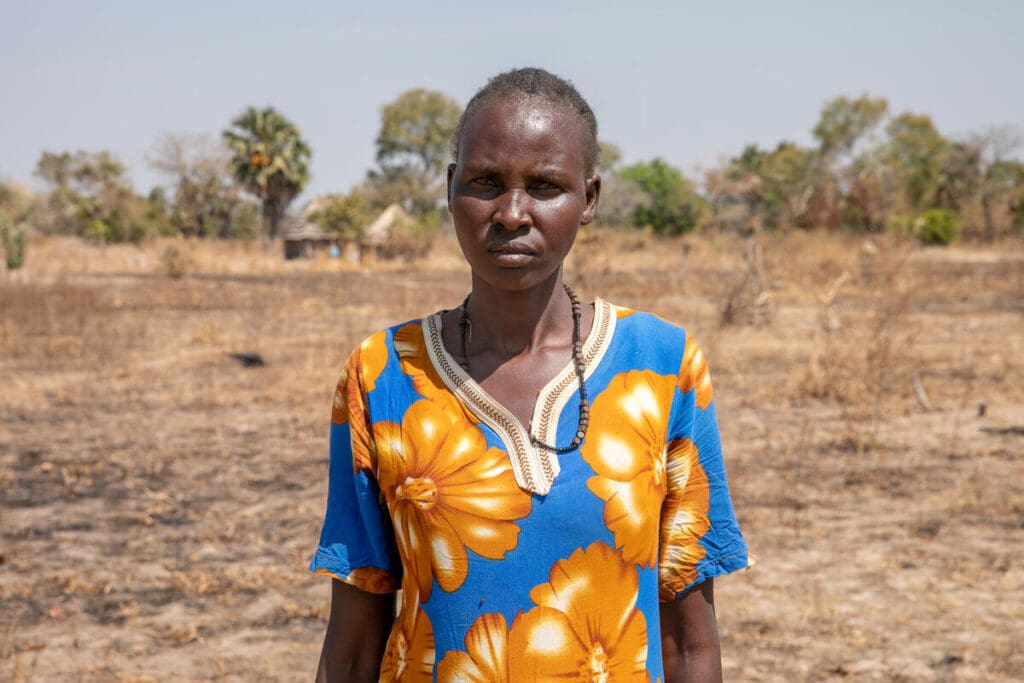Hunger Set to Hit Record High in Sudan as Fighting Continues

ROME/PORT SUDAN – The United Nations World Food Programme (WFP) warns that an additional 2 – 2.5 million people in Sudan are expected to slip into hunger in the coming months as a result of the ongoing violence in the country. This would take acute hunger in Sudan to record levels, with more than 19 million people affected.
The biggest spikes in hunger are expected in West Darfur, West Kordofan, Blue Nile, Red Sea and North Darfur states. Meanwhile, the cost of food is soaring all across the country. The price of basic food items is expected to increase by 25% in the next three to six months. If farmers are prevented from accessing their fields and planting key staples between May and July, it will drive food prices even higher.
Insecurity and violence forced the U.N. World Food Programme to temporarily pause its operations in Sudan but it has since restarted them. Since last week, the U.N. World Food Programme has reached over 35,000 people with lifesaving food. Operations are focused on assisting a total of 384,000 people including families who have recently fled the conflict, pre-existing refugees and internally displaced people and the vulnerable communities hosting them across Gedaref, Gezira, Kassala and White Nile states.
Additionally, the U.N. World Food Programme-managed United Nations Humanitarian Air Services (UNHAS) is starting regular air connections between Port Sudan and Addis Ababa, Ethiopia to facilitate the safe transportation of frontline humanitarian workers and critical aid.
In the coming months, the U.N. World Food Programme will scale up its emergency assistance to support 4.9 million vulnerable people in areas where the security situation allows in addition to preventing and treating moderate acute malnutrition for 600,000 children under five and pregnant and breastfeeding women. Prior to the outbreak of conflict, the U.N. World Food Programme had a funding gap of more than $300 million for its lifesaving operations, and the needs are expected to rise significantly with the crisis.
Supporting immediate needs in neighboring countries
The conflict has triggered displacement within and outside Sudan, with people fleeing to neighboring countries needing basics like shelter, food and water. In Chad, the U.N. World Food Programme rapidly provided emergency food assistance to new arrivals and has so far reached over 16,000 people. But the response is at risk because of a low level of funding for operations in Chad.
Over 40,000 people have already crossed into South Sudan, where the U.N. World Food Programme is providing hot meals each day at transit centers as well as nutrition screening for children and pregnant or breastfeeding women. Extra pressure on resources could force the U.N. World Food Programme to take food and funding from others to support new arrivals.
In Egypt, which is seeing the largest influx of refugees, the U.N. World Food Programme is working with the country’s government and the Egyptian Red Crescent (ERC) to provide food assistance to those fleeing the crisis in Sudan. More than 20 metric tons of fortified food items have been delivered to the two entry points and are currently being distributed by the ERC. The U.N. World Food Programme is coordinating with the government of Egypt, ERC and the United Nations refugee agency (UNHCR) to start immediate emergency food distribution of ready-to-eat food rations (that do not require cooking facilities and can be used immediately) to displaced families arriving from Sudan.
In the Central African Republic, nearly 9,700 people have crossed the border from Sudan and reached Amdafock in Vakaga prefecture. The U.N. World Food Programme is responding and plans to assist nearly 25,000 new arrivals expected over the coming days. The Vakaga prefecture is seeing emergency levels of hunger.
The U.N. World Food Programme remains committed to the people of Sudan and calls on all parties to take immediate steps to stop the fighting and facilitate humanitarian access so we can scale up our operations in a country with some of the highest rates of hunger in the world.
Note for the editor: High res. photos available here
# # #
The United Nations World Food Programme is the 2020 Nobel Peace Prize Laureate and the world’s leading humanitarian organization, saving lives in emergencies and using food assistance to build a pathway to peace, stability and prosperity for people recovering from conflict, disasters and the impact of climate change.
Follow us on Twitter @WFPUSA and @wfp_media




